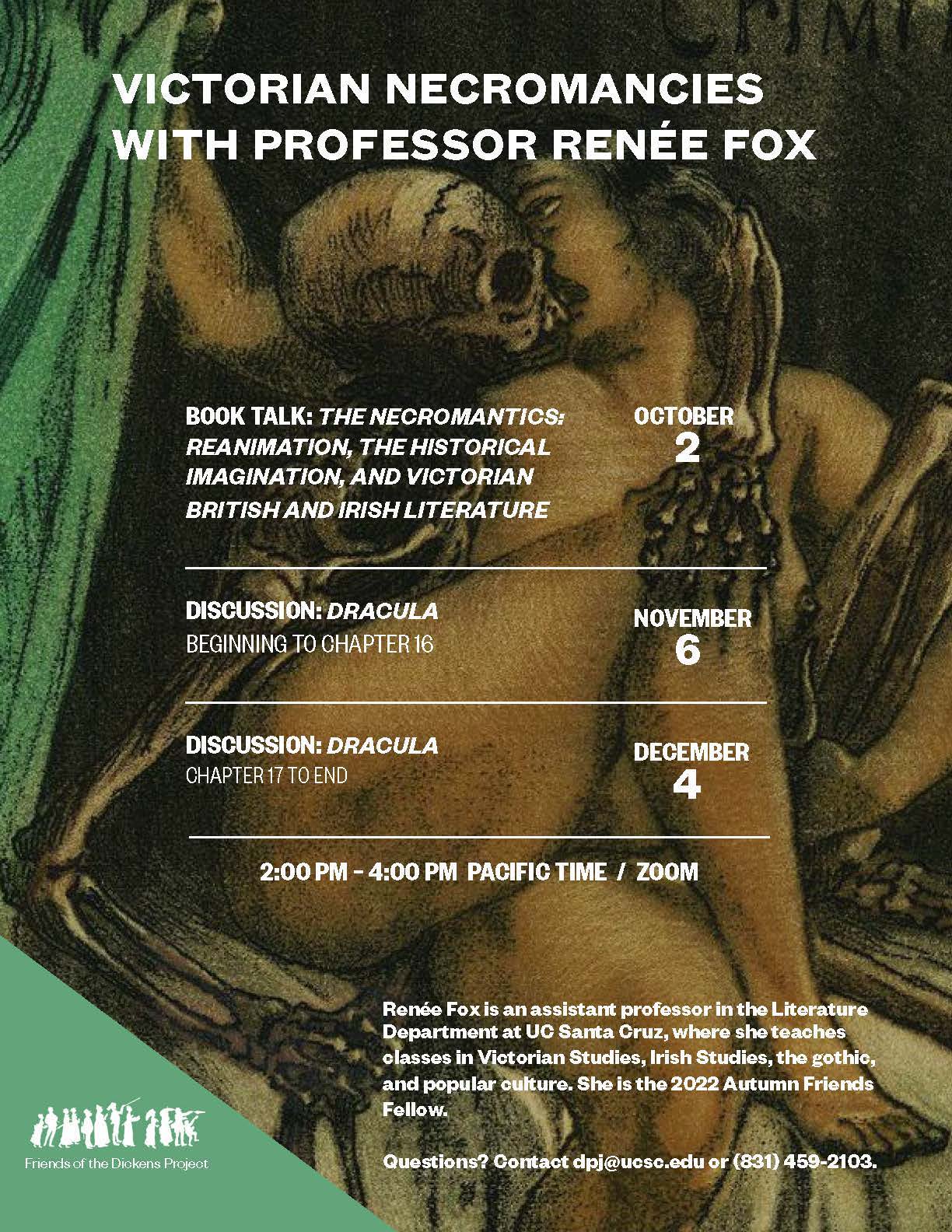 MDS: How did the Friends Faculty Fellowship come about?
MDS: How did the Friends Faculty Fellowship come about?RF: It originated in a conversion between me, John Jordan and Courtney Mahaney about how to expand the scope of the Dickens Project beyond Dickens’s work without diluting the focus of the Dickens Universe on Dickens himself. We wanted to expose the Universalists to a broad spectrum of other material—adding to what they love without always changing the emphasis of the Universe. The idea was to have members of the Universe faculty talk about their work on other aspects of 19th century literature in a way that would work for a non-academic audience. So, there will be two fellows each year, chosen by the Faculty Executive Committee and Friends of the Dickens Project based on applications from faculty members, whose talks will expand everyone’s access to new and different material and help keep us connected in between Universes.
MDS: How did you come to be a scholar of the gothic and monstrous?
RF: The gothic and vampires have always been my love—but it was “trashy” stuff, what I did for fun. When I started college at Stanford, I intended to focus on modern poetry. Then, as a sophomore, I took Joss Marsh’s course on cinema, adaptations and the relationship of high and popular culture. I was blown away by the realization that the “low” material I loved could be the focus of scholarly research and analysis. It changed my life. I did my honors thesis on the role of Egypt in the 19th century British imagination, based on a usually unread 1903 novel by Bram Stoker, The Jewel of the Seven Stars. Along with the Stoker novel we all know—Dracula—Jewel has been central to my work ever since.
MDS: What gives Dracula—and Dracula--such a hold on your imagination?
RF: Dracula as a character and mythos is the center of a long history of adaptations, some of which are better known than the novel itself. Dracula the novel became a dispersed cultural phenomenon, not just a book that got adapted to stage and screen. It’s an ever-unfolding story, and it’s very rewarding to study what Drac means as a cultural figure in any given time. And the book itself is very unsettling—it’s very different from the adaptations, an experimental work very concerned with its own form as a collation of all sorts of documents, technologies, and forms of testimony (letters, telegrams, diaries, transcribed dictation, newspaper stories, etc.) put together by some unidentified editor.
MDS: Does Drac’s immortality as a literary and cultural figure invoke thoughts of Dickens’s characters?
RF: Absolutely. Dickens is another example of a writer whose characters have been lifted from their texts and become a cultural mythos. Oliver Twist, along with Drac and Sherlock Holmes, is the most adapted character in English literature, and then there are Scrooge, Fagin, David Copperfield and a host of others who have taken on a life of their own.
Renee’s first lecture in October discussed 'The Necromantics' and the second and third of her inaugural talks will discuss Dracula on November 6 and December 4. Click here to register to attend the Dracula talks.
